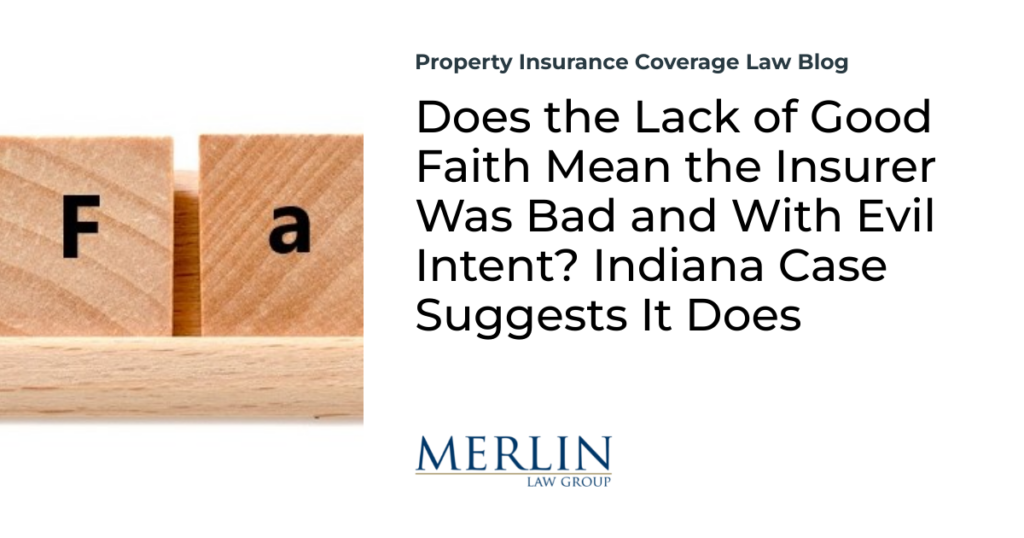Does the Lack of Good Faith Mean the Insurer Was Bad and With Evil Intent? Indiana Case Suggests It Does

I hate when insurers are accused of acting in “bad faith.” Most people who say that have no idea what they are saying or writing. They are just upset with the results of an insurer investigation. It is the failure to act in the utmost of good faith and fair dealing which historically subjects an insurer to extra-contractual damages. It does not mean that the insurer was “evil” or “bad.” The law did a disservice to consumers when it called these actions “bad faith” causes of action.
However, a recent Indiana case seems to indicate that “evil” intent is required in the first-party context.1 That recent Indiana decision stated the following:
“Best Inn argues Doyle had no rational, principled basis for denying its claim because the evidence of vandalism to the rooftop air conditioners was ‘obvious.’ Doyle admits he did not take enough photographs, did not record enough details, and generally did a poor job regarding the rooftop air conditioner inspection. Doyle also testified he was ‘having a bad day,’ his inspection was ‘probably’ affected by his eye injury, and that he had made a ‘mistake,’ Doyle’s testimony reflects that he may have acted negligently, but not with dishonest purpose or ill will. No reasonable jury could conclude otherwise.”
Having a “bad day” is going to be the excuse for the failure to act in good faith so long as the poor reasoning of this case is upheld. Failing to properly adjust a claim and causing extra-contractual damages to an Indiana policyholder is going to be met by a legal excuse of somebody “having a bad day.”
The case is full of poor facts leading to this unfortunate legal reasoning which will invite insurers in Indiana to act poorly and not in good faith—yet escape accountability for doing so. Just call it a “bad day at the office,” which resulted in an arbitrary, devastating result to the policyholder, and one can escape accountability for the duty to act in the utmost of good faith.
This is poor legal reasoning. Most crooks had a “bad day” when doing something criminal. If that is not a defense for criminal conduct, why should it be a defense to civil misconduct?
Thought For The Day
I believe that unarmed truth and unconditional love will have the final word in reality. This is why right, temporarily defeated, is stronger than evil triumphant.
—Martin Luther King, Jr.
1 Ohio Security Ins. Co. v. Best Inn Midwest, No. 1:22-cv-o1223 (S.D. Ind. Mar. 13, 2023).







